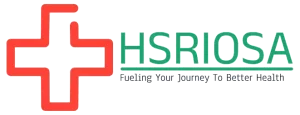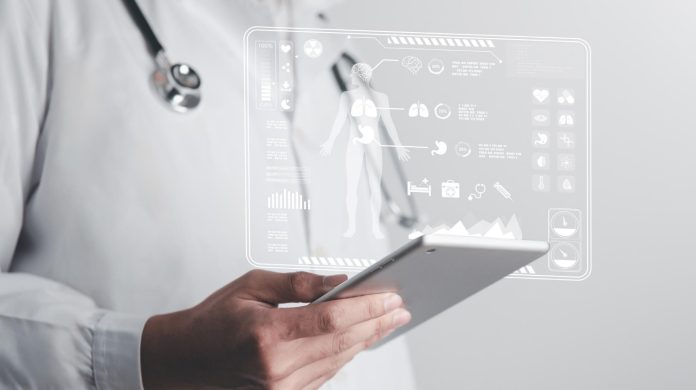Health and medicine are at a crucial crossroads in 2025. As technology continues to revolutionize care delivery, and as public expectations shift toward preventive and personalized treatment, the medical landscape is rapidly transforming. In the aftermath of the COVID-19 pandemic and in light of rising chronic disease rates, the global focus on health has never been greater. Medical professionals, policymakers, researchers, and tech innovators are collaborating to build a future where healthcare is smarter, faster, more accessible, and centered on the individual.
In this article, we’ll explore the latest trends, breakthroughs, and challenges in the health and medical field, and what they mean for the future of patient care and global well-being.
1. Personalized Medicine: Tailoring Treatment to the Individual
One of the most exciting developments in medicine is the shift from a one-size-fits-all model to personalized, or precision, medicine. With the help of genomics, AI, and advanced diagnostics, treatments can now be customized to the unique genetic makeup and lifestyle of each patient.
-
Genomic Sequencing: Affordable genetic testing allows for early identification of disease risk, from cancer to heart disease to rare genetic disorders.
-
Targeted Therapies: Oncologists are now using tumor-specific mutations to develop treatments that directly target cancer cells, reducing side effects and improving outcomes.
-
Pharmacogenomics: Doctors can tailor medications and dosages based on how an individual’s genes affect their response to drugs.
Personalized medicine leads to better treatment outcomes, fewer side effects, and improved patient satisfaction—paving the way for a more proactive and preventative approach to healthcare.
2. Digital Health and Telemedicine
Digital health has exploded in recent years and continues to redefine how care is accessed and delivered.
-
Telehealth Services: Video consultations, remote monitoring, and mobile health apps are making care accessible to those in rural areas, or with mobility limitations, or who simply prefer virtual care.
-
Wearable Devices: Smartwatches and fitness trackers are evolving into medical-grade monitors capable of tracking heart rate, blood oxygen, sleep patterns, and even blood pressure or glucose levels.
-
Digital Therapeutics (DTx): These are software-based interventions approved by regulatory bodies that help treat conditions like depression, ADHD, or diabetes through apps and programs.
Telemedicine is not only reducing the strain on healthcare systems but also giving patients greater control over their health journey.

3. Mental Health: From Awareness to Action
Mental health is receiving the attention it deserves as a vital component of overall wellness. The pandemic catalyzed global awareness of stress, anxiety, depression, and burnout, especially among healthcare workers and young people.
-
Access to Care: More platforms now offer virtual therapy, mental health coaching, and even AI-powered chatbots that provide 24/7 emotional support.
-
Workplace Mental Health: Organizations are investing in wellness programs, stress reduction initiatives, and flexible work policies to improve employee mental health.
-
Integrated Care Models: Healthcare providers are increasingly combining mental and physical health services to deliver comprehensive care.
Removing stigma and making mental health care as normal and accessible as physical health care is a major step forward for modern medicine.
4. AI and Machine Learning in Diagnosis and Treatment
Artificial intelligence is revolutionizing healthcare by enabling faster, more accurate diagnoses and supporting decision-making in complex medical cases.
-
Medical Imaging: AI tools can analyze X-rays, MRIs, and CT scans more quickly and accurately than humans, helping detect issues like cancer, fractures, or internal bleeding.
-
Predictive Analytics: Algorithms analyze patient data to predict disease risks, hospital readmissions, or treatment outcomes.
-
Virtual Assistants: AI-powered chatbots and virtual nurses help patients manage medication schedules, book appointments, and answer basic health questions.
While human expertise remains essential, AI offers critical support in enhancing speed, precision, and efficiency in medical care.
5. Chronic Disease Management and Lifestyle Medicine
Chronic diseases like diabetes, heart disease, and obesity continue to be the leading causes of death globally. However, there’s a growing shift toward managing and even reversing these conditions through lifestyle-focused medicine.
-
Diet and Nutrition Counseling: Personalized meal plans, coaching, and apps help patients adopt healthier eating habits.
-
Exercise Prescriptions: Doctors are prescribing physical activity as medicine, using fitness programs to manage or prevent diseases.
-
Remote Monitoring: Devices that track blood glucose, blood pressure, and heart rate help doctors and patients monitor chronic conditions in real time.
The emphasis on lifestyle medicine shows a growing recognition that prevention is often more powerful—and cost-effective—than treatment.
6. Global Health Equity and Access
While technology is advancing rapidly, many communities still face significant barriers to quality healthcare. Addressing health disparities is one of the most pressing challenges in global medicine.
-
Mobile Health Clinics: These provide essential care in underserved rural areas, offering vaccinations, check-ups, and maternal health services.
-
Low-Cost Medical Devices: Innovators are developing affordable tools for diagnostics and monitoring that can be used in low-resource settings.
-
Non-Profit and Government Initiatives: Organizations like WHO, Médecins Sans Frontières, and various ministries of health are working to expand access through education, infrastructure, and funding.
Bridging the gap in healthcare access is essential to creating a more just and healthier global society.
7. Medical Ethics in the Age of Innovation
As new technologies emerge, so do new ethical dilemmas. From gene editing and AI to patient data privacy, modern medicine must carefully balance innovation with responsibility.
-
CRISPR and Gene Editing: While the potential to cure genetic diseases is real, the risk of misuse or unintended consequences raises important ethical questions.
-
Patient Privacy: With increasing amounts of health data stored online, ensuring cybersecurity and data protection is critical.
-
Informed Consent: As AI makes more decisions in diagnostics and treatment, ensuring patients understand how their care is managed becomes more complex.
Ethical frameworks and transparent policies will be essential as medicine continues to advance into uncharted territory.
8. The Future of Medical Research and Drug Development
Medical research is undergoing rapid transformation, thanks to new tools and collaborative models.
-
mRNA Technology: After its successful use in COVID-19 vaccines, mRNA is now being researched for vaccines and treatments for cancer, HIV, and more.
-
AI in Drug Discovery: Machine learning helps identify potential compounds faster, reducing the time and cost of drug development.
-
Open Science: Researchers around the world are collaborating more openly, sharing data and accelerating breakthroughs in everything from neurology to infectious diseases.
We’re entering an age of faster, smarter, and more collaborative medical research with the potential to cure diseases that once seemed untreatable.

Conclusion: The Next Chapter in Health and Medicine
The health and medical field in 2025 is marked by both exciting breakthroughs and complex challenges. As technology enhances our ability to diagnose, treat, and prevent illness, we must also ensure that care remains compassionate, ethical, and accessible to all.
From personalized treatments to digital health innovations, the focus is shifting from reactive care to proactive, patient-centered approaches. But the true test lies in ensuring that these advances benefit not just a few, but entire populations—regardless of geography, income, or background.
As we look to the future, it is clear that health and medicine will continue to evolve rapidly. The key to success will be adaptability, innovation, and an unwavering commitment to human well-being.




